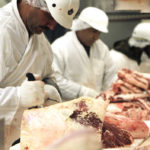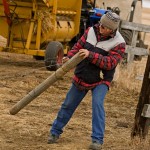Labour shortages will restrict growth in the beef and pork sectors during the next decade, says the latest analysis from the Canadian Agricultural Human Resource Council (CAHRC). It says that “a widening labour gap threatens to limit the profitability and growth of Canada’s red-meat industry.” The council is examining 11 agriculture sectors. It has already












